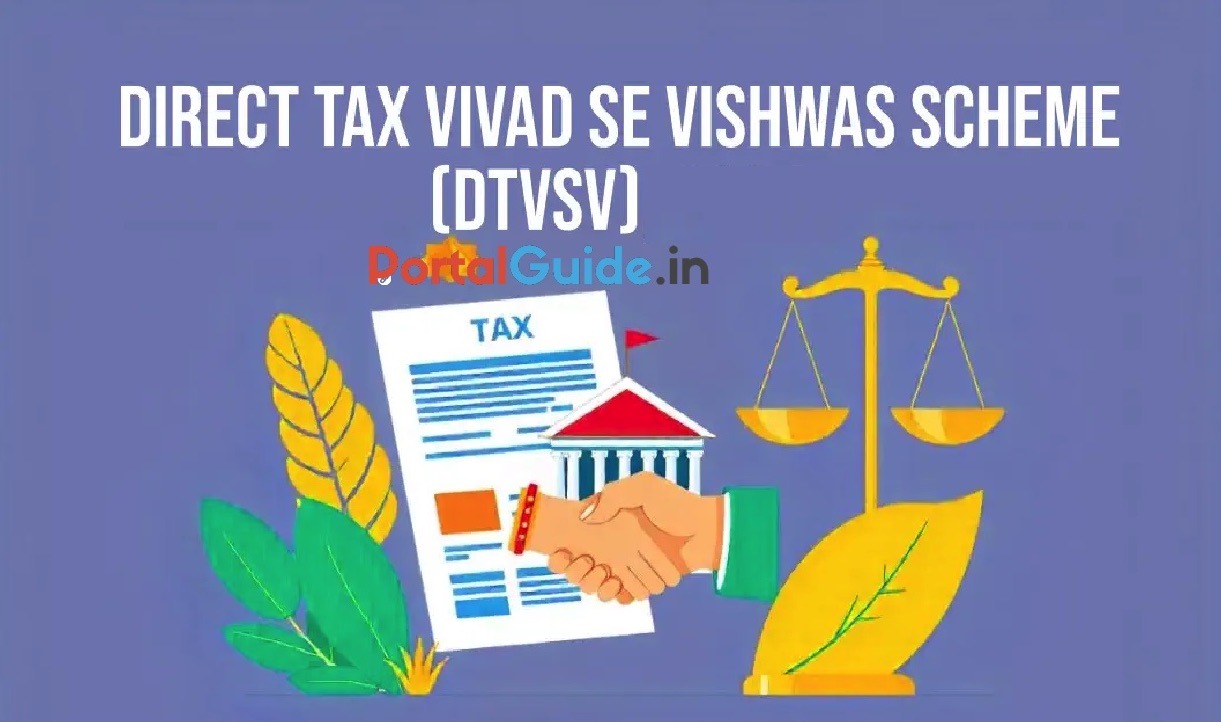The Vivad Se Vishwas Scheme is an initiative by the Government of India aimed at resolving longstanding tax disputes and reducing litigation. Launched under the Direct Tax Vivad Se Vishwas Act, 2020, the scheme was initially introduced in the Union Budget 2020 by the Finance Minister Smt. Nirmala Sitharaman.
It encourages taxpayers to settle their pending income tax disputes by offering them a mechanism to pay their dues with minimal interest or penalties. The scheme’s primary goal is to ease the burden of tax litigation on both taxpayers and tax authorities, expediting the process of tax dispute resolution.
About Vivad Se Vishwas Scheme 2025
A new version of the scheme, Direct Tax Vivad Se Vishwas Scheme 2025 was introduced in the Union Budget 2024-25. It offers a fresh opportunity to taxpayers to settle unresolved disputes by paying lower settlement amounts if filed before 31st December 2024. The scheme is applicable from 1st October 2024 and is aimed at further reducing pending tax appeals.
Key Features of Vivad Se Vishwas Scheme
- Dispute Resolution: The scheme allows taxpayers with pending tax-related disputes in various courts and tribunals to settle by paying the disputed tax amount.
- Reduced Penalties: For taxpayers who settle their disputes before a specified date, there is relief in terms of interest and penalties. If the settlement is done on or before the deadline, only the tax amount needs to be paid, and no further interest or penalties will be imposed.
- Coverage: The scheme applies to disputes related to income tax or corporate tax, covering appeals pending in any appellate forum, such as the Supreme Court, High Courts, Income Tax Appellate Tribunals (ITAT), and Commissioner (Appeals).
- Eligibility: Taxpayers with disputed tax arrears or tax litigation cases pending as of a certain date are eligible to opt for this scheme.
- Flexible Payment Terms: Different settlement percentages are offered based on the type of dispute and the timing of the settlement. Taxpayers settling early benefit from reduced settlement amounts.
- Appeal Withdrawal: Once a taxpayer chooses to settle under the scheme, they must withdraw the appeal or case filed in court or tribunal.
DTVSV, 2024 (New Scheme)
In the Union Budget 2024-25, the government introduced a new version of this scheme — Direct Tax Vivad Se Vishwas Scheme, (DTVSV, 2025) — to address the unresolved disputes after the 2020 initiative. This new scheme, set to be implemented from 1st October 2024, offers taxpayers another opportunity to resolve their pending appeals with favorable terms for early settlement.
Benefits of the Scheme
- Reduces litigation: Helps clear the backlog of tax dispute cases, thus reducing the load on courts and tax tribunals.
- Quick resolution: Provides a faster way for taxpayers to close their pending cases, avoiding lengthy litigation.
- Simplicity: The process is simple and offers a one-time opportunity for taxpayers to settle without complex procedures.
- Revenue Boost: For the government, this scheme ensures quicker collection of taxes, providing a revenue boost without prolonged legal proceedings.
DTVSV Scheme 4 Separate Forms
Four separate forms have been notified for the implementation of the DTVSV Scheme. They are as follows:
- Form-1: Declaration and Undertaking form to be submitted by the declarant.
- Form-2: Certificate to be issued by the Designated Authority.
- Form-3: Form for Intimation of payment to be submitted by the declarant.
- Form-4: Order for Full and Final Settlement of tax arrears issued by the Designated Authority.
Under the DTVSV Scheme, a separate Form-1 must be filed for each dispute. However, if both the appellant and the income tax authority have filed an appeal for the same order, a single Form-1 can be submitted for such a case.
Intimation of payment must be made using Form-3, which should be submitted to the Designated Authority along with proof of withdrawal of any appeal, objection, application, writ petition, special leave petition, or claim.
Forms 1 and 3 must be submitted electronically through the Income Tax Department’s e-filing portal at https://www.incometax.gov.in/iec/foportal/
https://portalguide.in/tag/yojana/
Direct Tax Vivad Se Vishwas (DTVSV) Rules 2025 PDF
Download the PDF guidelines for dispute resolution under the Direct Tax Vivad Se Vishwas (DTVSV) Rules, 2024 from the link below.
https://static.pib.gov.in/WriteReadData/specificdocs/documents/2024/sep/doc2024921398801.pdf

